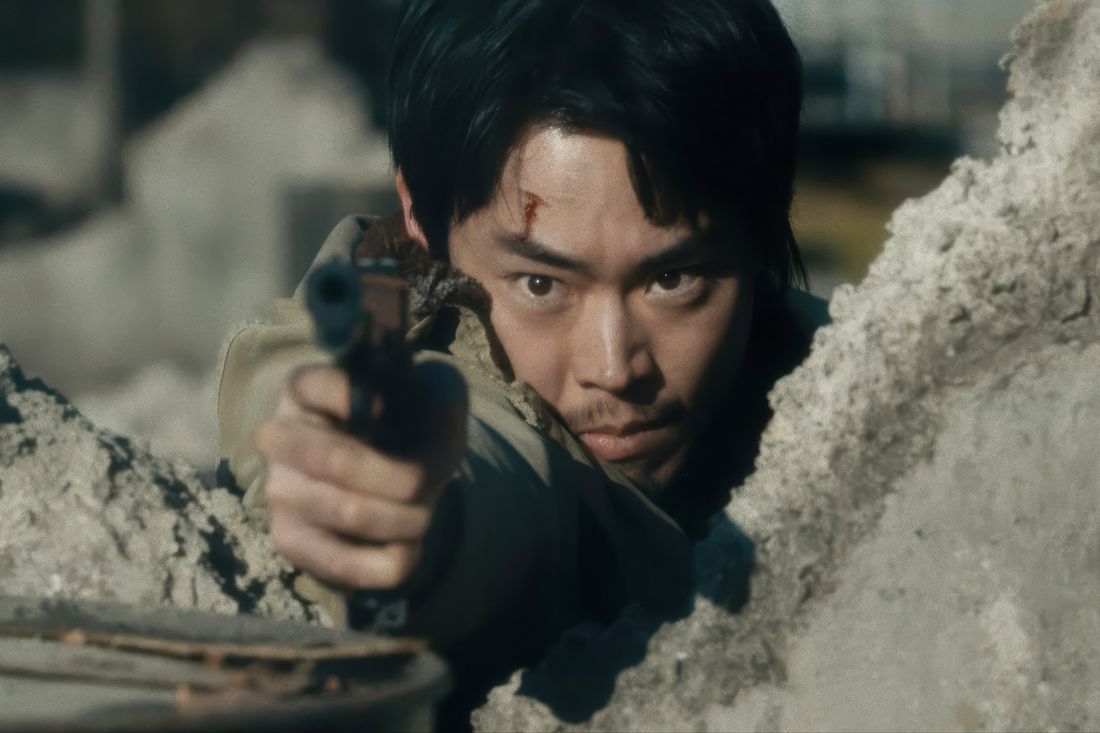
In Kiyoshi Kurosawa’s nerve-wracking new thriller titled “Cloud“, the story begins abruptly, much like classical epics, but instead of focusing on a brave warrior in the heat of battle or a vengeful prince plotting regicide, we are dropped into the midst of a casual business negotiation with minimal background information. The protagonist, Ryosuke Yoshii (played by Masaki Suda), is attempting to persuade a manufacturer to sell him a collection of enigmatic “therapy devices” at a significant discount. Yoshii appears hurried, indifferent, and uncaring; he pays no attention to the man’s operational costs, manufacturing expenses, or the function of the device itself. After completing the purchase, Yoshii returns home, adds some flashy sales pitches, advertises his supposed discount, and swiftly sells everything at a considerable profit. As each item is claimed, he nervously watches his computer screen. Despite selling out, we are still unclear about what these devices do or how Yoshii feels about the entire situation; even when all items are gone, he merely sighs briefly – whether it’s a sigh of relief or satisfaction remains uncertain, as an anxious expression lingers on his face.
Yoshii could be compared to a contemporary gunslinger or adventurer, but in the digital era, he’s more like an eBay reseller, hoarding and flipping various unimportant items online such as medical devices, figurines, and games. His apartment is stacked with plain delivery boxes, hinting at a lack of storage space. One day, he prepares to buy 20 copies of a popular game that’s selling quickly, but his attention is briefly diverted by his charming girlfriend, Akiko (Kotone Furukawa). Upon returning to his computer, the game has already been sold out, causing little reaction from Yoshii. Despite such setbacks, Yoshii maintains a mysterious demeanor towards everyone in his life – sellers, buyers, coworkers, and even Akiko – suggesting that he’s lost touch with what truly matters to him, focusing only on survival.
Kurosawa has a knack for unearthing tension from the frozen facades of contemporary existence – a trait that sets him apart in the realm of suspenseful cinema. His J-horror films from the late 90s and early 2000s, such as “Cure”, “Charisma”, and “Pulse”, are highly respected in the modern genre pantheon. Unlike typical thrillers, Kurosawa’s movies derive suspense not primarily from events or unexpected twists, but rather from emotional estrangement. The protagonist Yoshii, who is fixated on buying and selling, seems almost emptied out. His frequent looks at his bank account betray a man precariously staying afloat. He’s also plagued by paranoia, interpreting ominous signs everywhere, perhaps because he fears the day his deception will be exposed. Yoshii is not an isolated contemplative character; instead, he embodies our collective unease as we strive to keep up with the treadmill of modern capitalism, always looking over our shoulders in apprehension. It turns out that many of his customers seem to be resellers themselves.
As the movie unexpectedly veers off course, much like Kurosawa’s typical style, a somber, tense narrative abruptly transforms into something more eccentric, allowing the director to explore his imaginative and surreal aspects. Instead of maintaining its thriller genre, Cloud starts leaning towards action, though I won’t disclose the specifics. Kurosawa portrays violence in a comical manner, stripping it of its harshness and danger, making even the most brutal scenes feel artificial, senseless, and devoid of impact in a world where humans are disconnected from their actions.
While it may disappoint some viewers, Kurosawa’s unique style is a hallmark of his work. He skillfully creates tension only to subvert it through a whimsical handling of plot and action, which might seem like a contradiction. In essence, these contrasting elements are simply different facets of the same theme. Kurosawa’s films explore psychological turmoil with profound seriousness, yet he portrays physical violence with a touch of humor. The absurdity in his work mirrors the chaotic nature of our world.
Read More
- Who Is Harley Wallace? The Heartbreaking Truth Behind Bring Her Back’s Dedication
- 50 Ankle Break & Score Sound ID Codes for Basketball Zero
- Lost Sword Tier List & Reroll Guide [RELEASE]
- Basketball Zero Boombox & Music ID Codes – Roblox
- 50 Goal Sound ID Codes for Blue Lock Rivals
- The best Easter eggs in Jurassic World Rebirth, including callbacks to Jurassic Park
- Summer Games Done Quick 2025: How To Watch SGDQ And Schedule
- Gaming’s Hilarious Roast of “Fake News” and Propaganda
- 100 Most-Watched TV Series of 2024-25 Across Streaming, Broadcast and Cable: ‘Squid Game’ Leads This Season’s Rankers
- 11-year-old boy beats 7-year-old to win 2025 Rubik’s Cube World Championship
2025-07-18 22:54